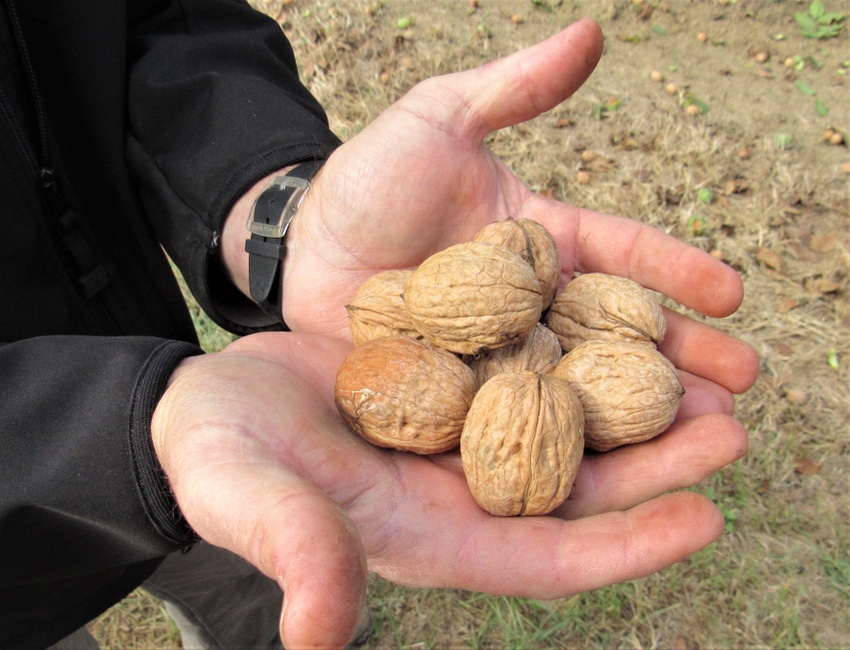July 25, 2019

Today, Agriculture Secretary Sonny Perdue announced funding for walnut growers impacted by unjustified tariff retaliation and trade disruption.
The funds are being made available through the Market Facilitation Program (MFP) as part of the trade relief package, announced by the United States Department of Agriculture (USDA) in May, which includes $14.5 billion in direct payments to producers and well as $100MM in Agriculture Trade Promotion funds for export market development.
To date, the California Walnut Commission (CWC) has received $3.6 million in ATP funds for additional export activities to offset losses result from trade disruption.
CWC Chairman William Carriere expressed his gratitude to USDA.
“We are appreciative to receive some relief for our growers who have been suffering from suppressed pricing since tariff retaliation began," he said.
Other specialty crops are also eligible, including almonds, pistachios, cranberries, cultivated ginseng, fresh grapes, fresh sweet cherries, hazelnuts, macadamia nuts and pecans, according to the USDA..
Tariff actions over the past year, including a base rate tariff change in India and retaliatory tariffs imposed in several of key markets including China, Turkey and India, destabilized the global walnut market driving pricing down significantly, industry leaders say.
“These actions have threatened the stability of our industry, our growers and our competitiveness in the global market. The economic impact to the industry has been devastating, with losses in excess of $600 MM. While these funds do not replace the losses, they will certainly help our growers through this difficult time,” said Carriere.
Payments based on acreage
California walnut growers will receive payment based on 2019 planned acres of production. MFP payments will be made in up to three tranches, with the second and third tranches evaluated as market conditions and trade opportunities dictate. If conditions warrant, the second and third tranches will be made in November and early January, respectively.
The first tranche will be comprised of the higher of either 50 percent of a producer’s USDA calculated payment rate of $15 per acre, which may reduce potential payments to be made in tranches two or three. USDA will begin making first tranche payments in mid-to-late August. Per-acre specialty crop payment rates and livestock payment rates are all currently available on farmers.gov/mfp.
MFP payments are limited to a combined $250,000 for non-specialty crops per person or legal entity. MFP payments are also limited to a combined $250,000 for dairy and hog producers and a combined $250,000 for specialty crop producers. However, no applicant can receive more than $500,000.
Eligible applicants must also have an average adjusted gross income for tax years 2014, 2015 and 2016 of less than $900,000, or 75 percent of the person's or legal entity's average AGI for those years must have been derived from farming and ranching. Applicants also must comply with the provisions of the Highly Erodible Land and Wetland Conservation regulations.
The MFP rule and a related Notice of Funding Availability will be published in the Federal Register on July 29, 2019, when signup begins at local FSA offices. Growers will need to visit their local USDA Farm Service Agency to resister for the program, available Monday, July 29 through Friday, Dec. 6.
The California walnut industry remains a key supplier in global trade of walnuts, exporting over 66 percent of production.
“Ensuring fair and equitable trade remains critical to our industry; we need permanent resolution to the ongoing tariff issues that have continued to disrupt markets globally,” stated Michelle McNeil Connelly, CWC CEO.
The CWC has remained actively engaged with USDA, United States Trade Representative (USTR) and Congressional Representatives “to ensure that our concerns are heard regarding tariff issues as well as non-tariff barriers facing the industry,” Connelly stated.
Source: California Walnut Commission, which is solely responsible for the information provided and is wholly owned by the source. Informa Business Media and all its subsidiaries are not responsible for any of the content contained in this information asset.
You May Also Like




